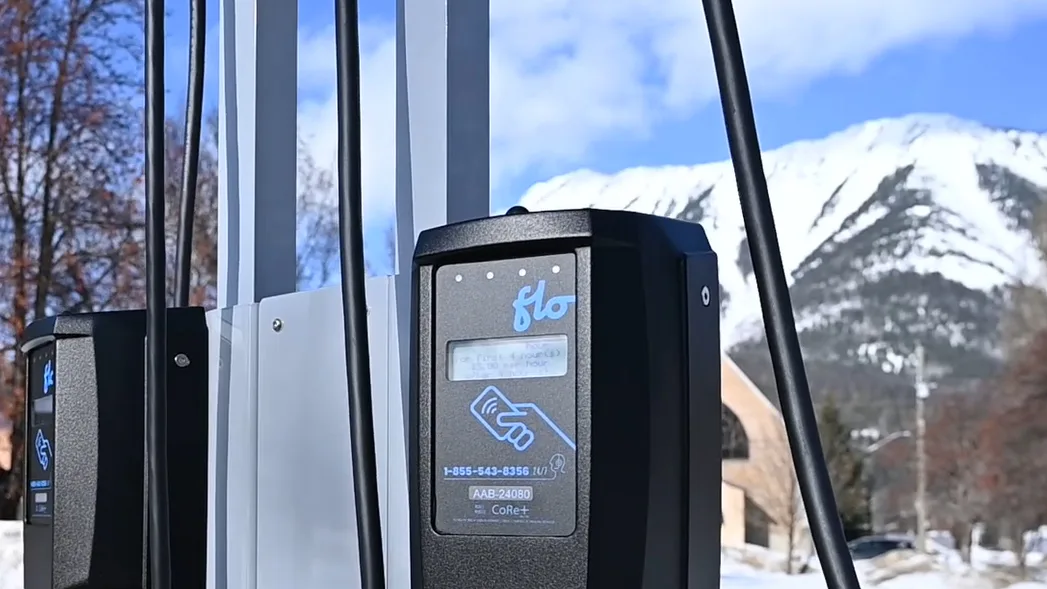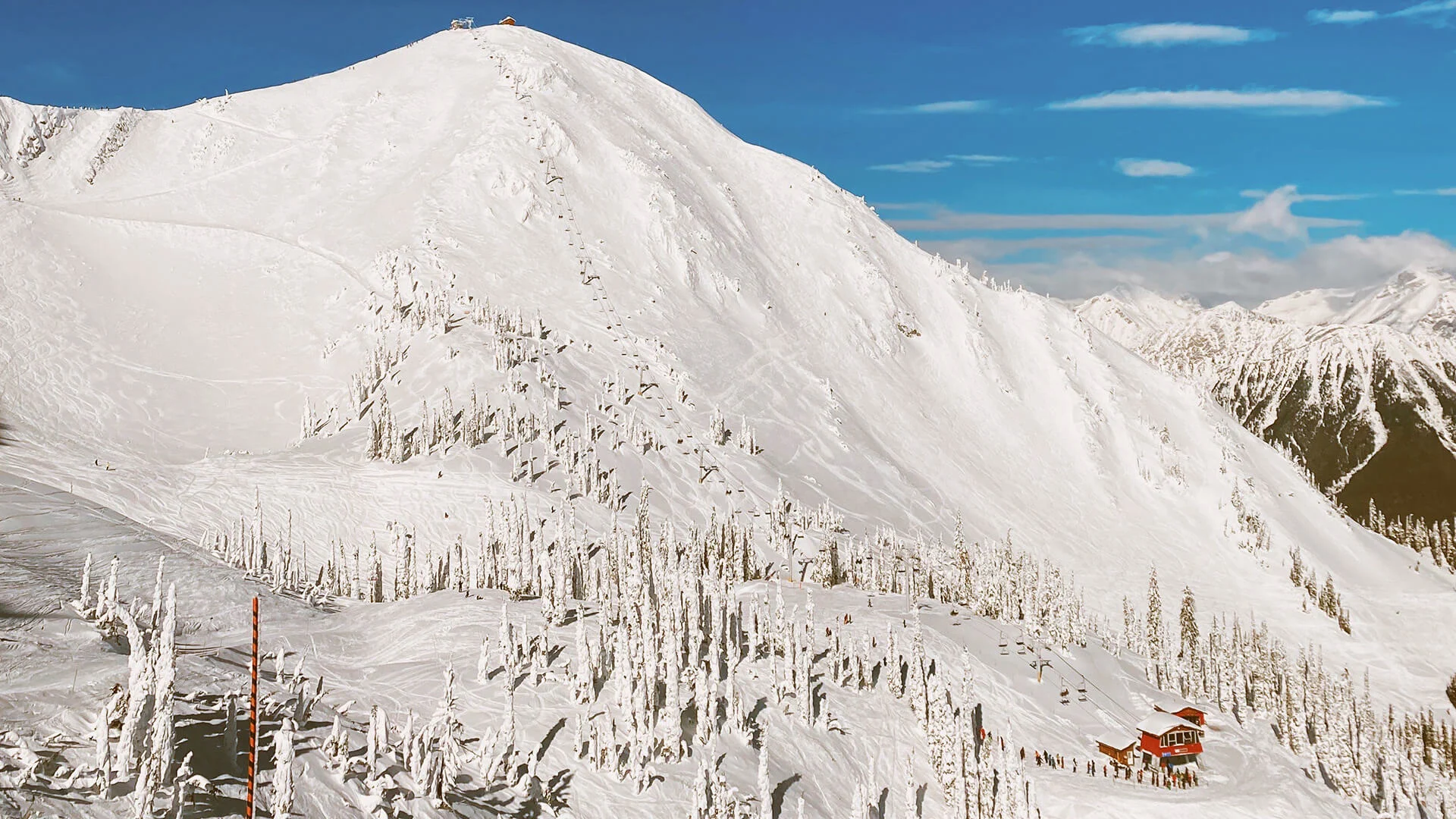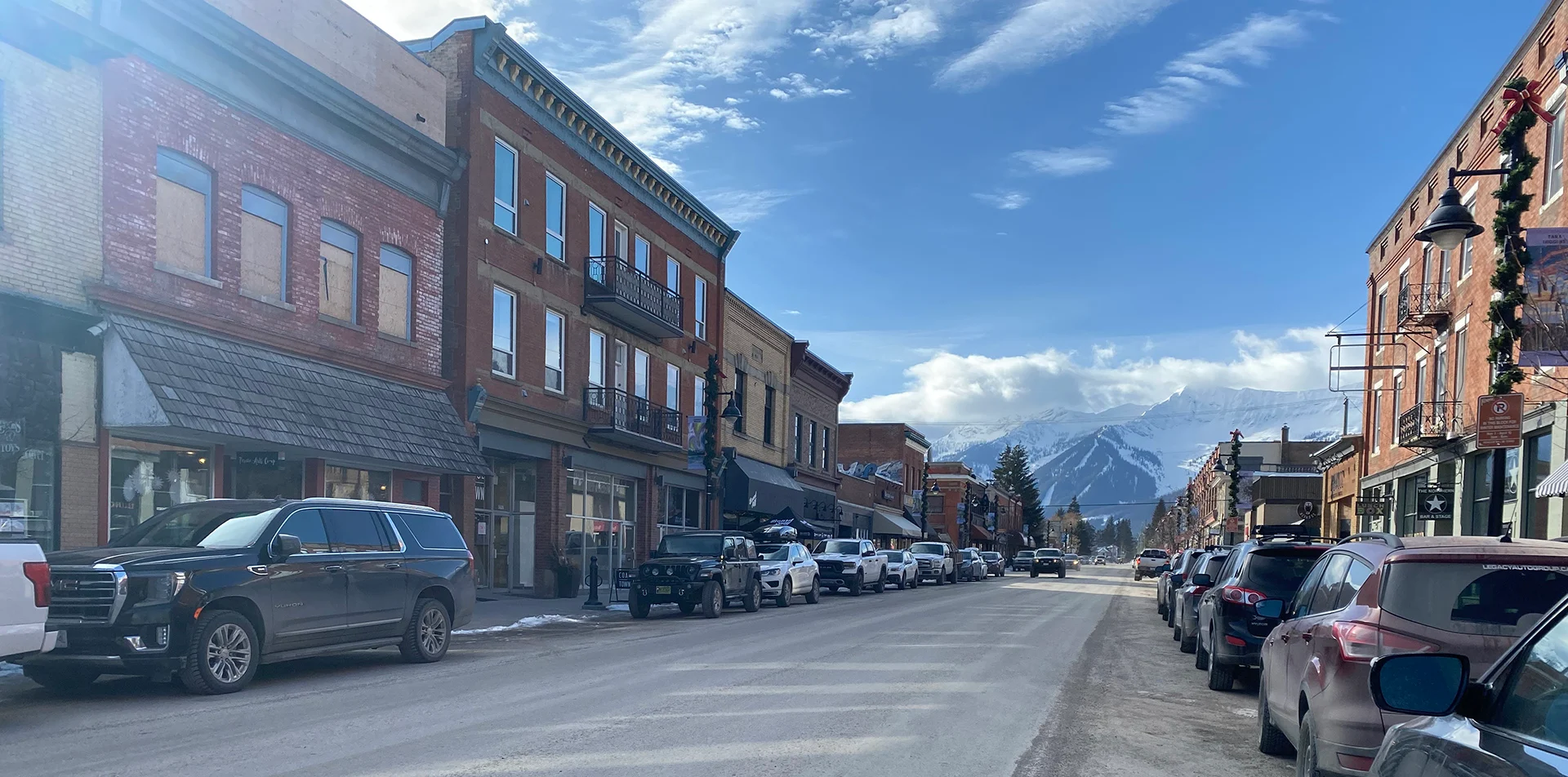
Why this ski region wants to electrify the ‘Powder Highway’
Fernie, B.C., is one of the ski towns along the province’s famed “Powder Highway” at the forefront of increasing access for electric vehicles in an effort reduce the impact of fossil fuel vehicles.
Once a mining town known for its coal and sawmills, Fernie, B.C., is is now known as a funky ski town with bright murals mixed in with the old brick buildings.
A little off the beaten path along the famous “Powder Highway” — which carves its way through numerous ski resorts and lodges in the Kootenays region — Fernie is on the smaller side. Around 5,000 people call this place home, yet the number of local residents doubles in the winter, and the number of visitors skyrockets to more than 300,000 as people from around the world travel here to experience the powdery snow, known as the “Fernie factor.”
“The epic snow that we get here in Fernie is part of the reason that we have such a great reputation.” Robin Siggers, operational manager at Fernie Alpine Resort told The Weather Network while on the chairlift for the first runs of the day.
READ MORE: Will B.C.’s famed ‘Powder Highway’ survive in a warming world?
“We have a little tiny microclimate that surrounds our ski area. Due to our geographical location in the front regions of the Rocky Mountains means that when the storms approach from the coast first hit the mountains they dump their load right here on Fernie,” he added.
On average, Fernie receives around 30 feet of snow each winter. On those big dump days, you are more likely to find the locals on the hills than the streets because of the town’s 20-centimetre rule: businesses get to shut their doors until noon on days where there is 20 centimetres of fresh snow.
Fernie is the definition of a ski town, but those big powder days might be fewer and farther between as even the legendary snow here isn’t safe from a changing climate.

A look at the mountains near Fernie. (Mia Gordon/The Weather Network)
In 2014, like many other ski resorts across B.C., Fernie saw one of their worst years on record. At times webcam pictures showed green grass under chairlifts and, according to experts, the conditions that we saw in 2014 could be the norm by 2050.
So the town has been trying to find ways to keep Fernie’s electric energy by literally electrifying the region.
“Because we are rural, transportation is one of the biggest contributors to greenhouse gasses in our communities and so shifting towards low carbon transportation options is the best bang for buck for reducing greenhouse gas emissions here,” Megan Lohmann, deputy executive director for Community Energy Association, told The Weather Network.

Downtown Fernie, B.C. (Mia Gordon/The Weather Network)
“This was the first rural EV network in Canada driven by the community,” Lohmann said while helping the members of the Fernie Chamber of Commerce set up for a lunch-and-learn with local businesses to teach them more about a new program called Accelerate Kootenays 2.0.
“We have nine new Level 2 charging stations, and what that does is not just support local residents to transition to electric vehicles but also to encourage local electric tourism,” Lohmann added.
In the past, the idea of exploring the Powder Highway in an EV would be unheard of — small rural towns with hundreds of kilometres of road between them. But the proponents are working to make the EV travel a reality. They have already connected 1,870 km of highway with charging stations and have seen a 52 per cent increase in use from 2018 to 2019.
READ MORE: This former mining town is a solar-powered highlight on the ‘Powder Highway’
While the Chamber of Commerce and local businesses are working hard in the town to reduce emissions, back on the mountain they are also trying to find ways to use more renewable energy resources.
“We are looking at electric snowmobiles,” Siggers said.
Recently Fernie Alpine Resort invested in high efficiency snowcats that reduce emissions, but they want to take it a step further and have been in talks with Quebec based company Taiga, a company that specializes in electric off-road vehicles such as snowmobiles and watercraft.
Fernie wants to let the world know that they are electric friendly and they are hoping that by doing so they will start to make an impact on reducing greenhouse gas emissions and protecting the snow that makes them so famous.












